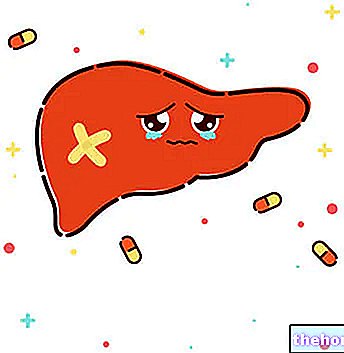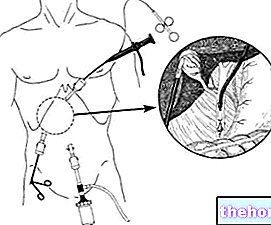Vaccination
The prophylaxis of hepatitis A is based not only on compliance with certain hygiene and behavioral rules, but also on vaccination and passive immunization using standard gamma globulins (antibodies).

In addition to giving a "long-lasting immunity, the anti-hepatitis-A serum proves to be particularly effective, so much so that it covers almost 100% of the vaccinated.
The vaccine, injected intramuscularly, usually in the deltoid region, requires a booster after 6 or 12 months. Side effects are few and mostly local: pain at the injection site, rarely headache, malaise, nausea and loss of appetite.
Vaccine: Who is it suitable for?
Vaccination is indicated for drug addicts, active homosexuals, travelers traveling to regions at risk, patients with chronic viral hepatitis and people with chronic liver disease or who require transfusions (haemophilia).
Vaccine or passive immunization?
Compared to the vaccine, immunoglobulins are preferred when rapid immunization is required. The vaccine, in fact, requires two to four weeks to provide the desired protection, while the immunoglobulins are active right away, with a coverage of 85% (versus 97% of the vaccination).
The same antibodies can be used to prevent or attenuate the disease in healthy subjects who have come into contact with the virus; in this case, however, treatment must be undertaken promptly, within two weeks of the infection.
Immunoglobulins are also often administered to people who live in the same home as people with known hepatitis; their use is not contraindicated in pregnancy and lactation.
While the vaccine protects the subject from hepatitis A for at least a decade, the effect of the exogenous immunoglobulins wears off within 3-6 months.
Finally, it should be noted that people who have recovered from a previous hepatitis A infection have a set of antibodies in their blood that will protect them from the disease for the rest of their lives. It should also be remembered that hepatitis-A vaccines, as well as immunity acquired after overcoming the disease, can do nothing against other forms of hepatitis (B, C, D, E, G).
Prevention
Beyond the preventive vaccination or passive immunization, the traveler who goes to high-risk countries should respect some simple rules, such as rinsing the vegetables and fruit thoroughly, and peeling the latter before consumption. Very important, moreover, the fact of eating meat and fish (especially molluscs) only after a generous cooking.
Another important vehicle of hepatitis A infection is water; that taken from the tap or from common sources should always be boiled for at least 5-10 minutes, while the bottled one can be consumed with greater peace of mind, as long as it is uncorked before your eyes. Also pay attention to ice cubes, which should never be consumed directly or added to drinks, and to the water used to brush your teeth: it should also be safe, therefore bottled. Similarly, when bathing in rivers and seas it is good to pay attention that no water enters the mouth.
Individual prevention of hepatitis A is completed with common rules of personal hygiene, such as careful and frequent hand washing, especially after being in the toilet and before handling food. Items such as toothbrushes, cutlery, glasses and towels should be strictly for personal use.
The countless possible routes of contagion described up to here underline the importance of active (vaccine) or passive (gamma globulins) immunization before departure, for travel or for work, in areas at risk.
The general prevention of hepatitis A, which is very effective in industrialized countries, is implemented by providing homes with an "adequate sewage system and an effective waste collection and treatment system; all with the aim of avoiding the contamination of the aquifers. Be careful, therefore, when you go to countries or regions where waste is piled up along the roads rather than in special landfills.
Related topics: hepatitis B; hepatitis C; hepatitis D; hepatitis E; Medicines for the treatment of hepatitis
Other articles on "Hepatitis A: Vaccine and Prevention"
- Hepatitis A: risk factors, diagnosis and treatment
- Hepatitis A
- Medicines for the Treatment of Hepatitis A
- Hepatitis A diet




























